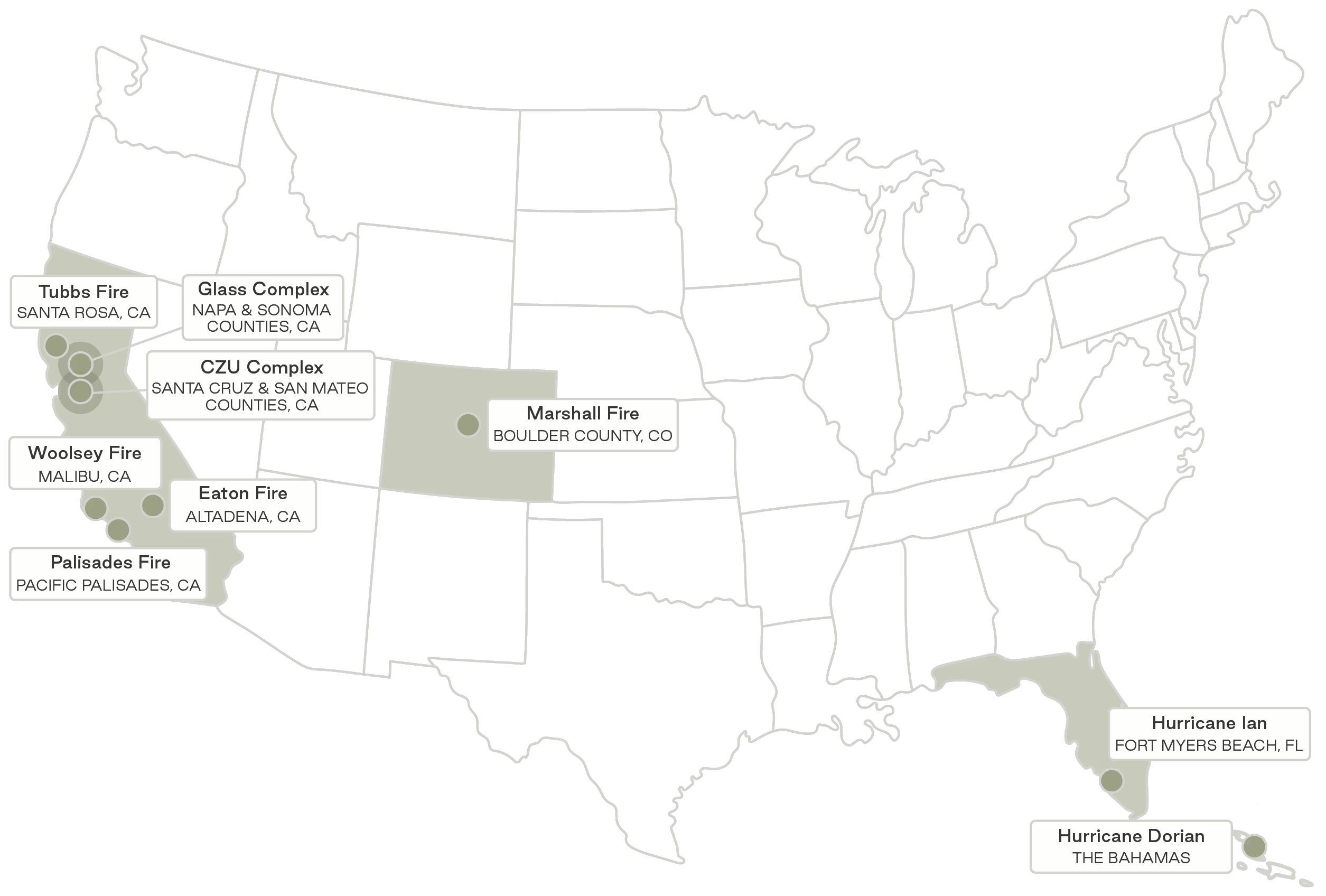When disaster strikes, Homebound is the trusted partner homeowners turn to for clarity, expertise, and a path forward. With proven experience rebuilding after major wildfires including the Tubbs, Woolsey, and Marshall Fires, our team understands the emotional and logistical challenges that come with starting over.
Our team designs homes that honor the original character of affected neighborhoods. Thoughtful in style, scale, and materials while integrating modern resilience. We guide every step of the process, from insurance coordination, debris removal, permitting to design, and construction. With a streamlined approach and proprietary technology, we ensure a high-quality rebuild that helps families return home with confidence.

At Homebound, we’re reimagining what modern homebuilding is. Traditional construction is slow, fragmented, and outdated, so we built a better way. With deep homebuilding experience, expert craftsmanship, and proprietary technology, we provide a streamlined, transparent, and quality-driven process designed around you.
Building a new home is an exciting journey, and Homebound is here to make it easy and stress-free. Our homebuilding process has 5 key components:
Meet with our team to discuss your rebuilding needs and explore your options.
Learn about your insurance coverage options to support your rebuild.
Work with our architects to choose from pre-approved plans for faster permitting, then personalize your home with our designers and Digital Design Studio.
We build to IBHS Wildfire Prepared standards to ensure your rebuilt home is designed to better withstand embers, heat, and wildfire exposure.
Once construction is complete, we’ll walk you through your new home, introducing you to its features and ensuring a seamless transition.

Personalization Available
IBHS Wildfire Prepared





Personalization Available
IBHS Wildfire Prepared




Richard, Santa Rosa
At Homebound, we know there are few things as devastating as losing your home to a natural disaster. Get in touch with us today to learn more about your options. We’re here to support you through every step of the rebuild process.